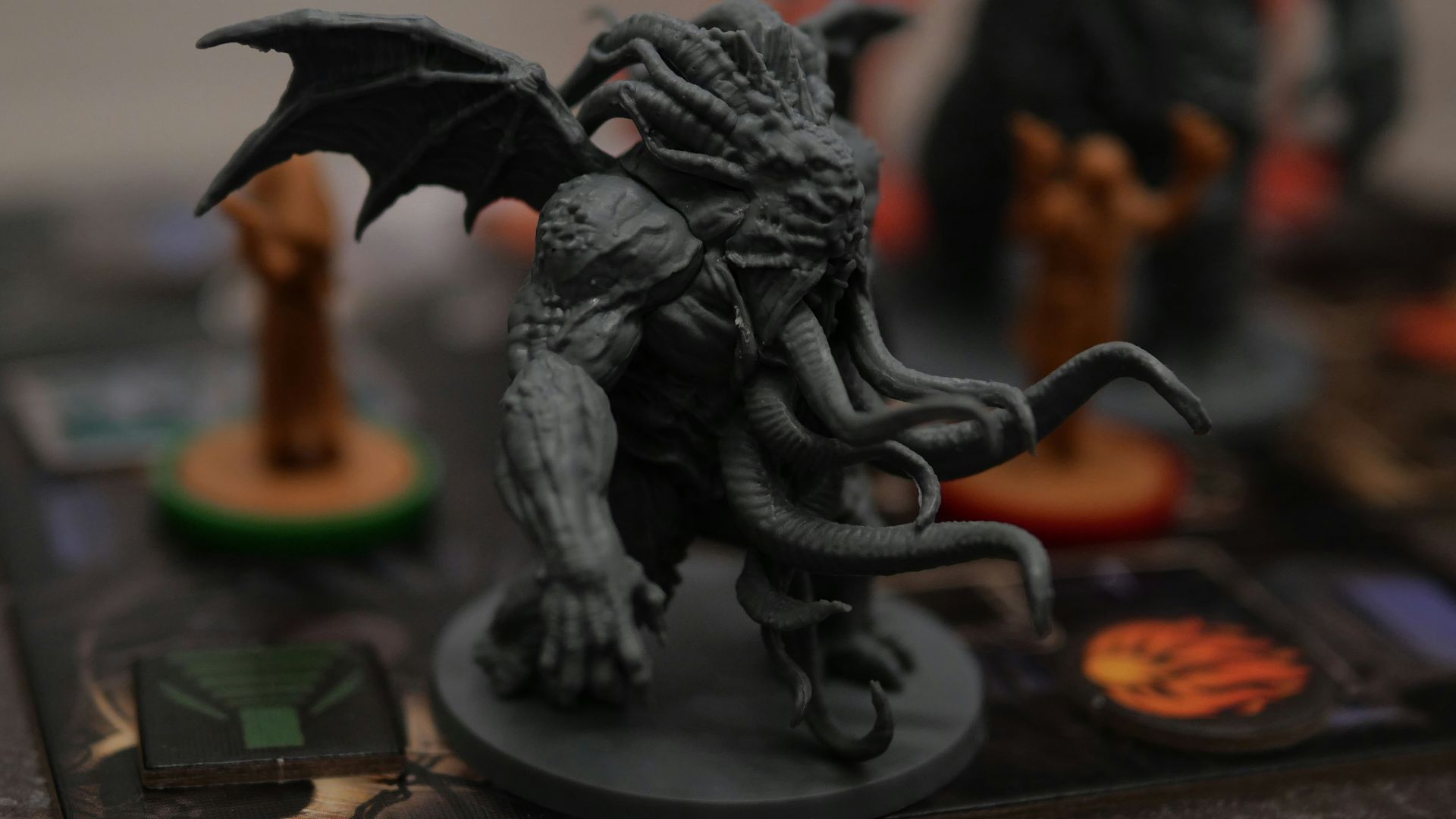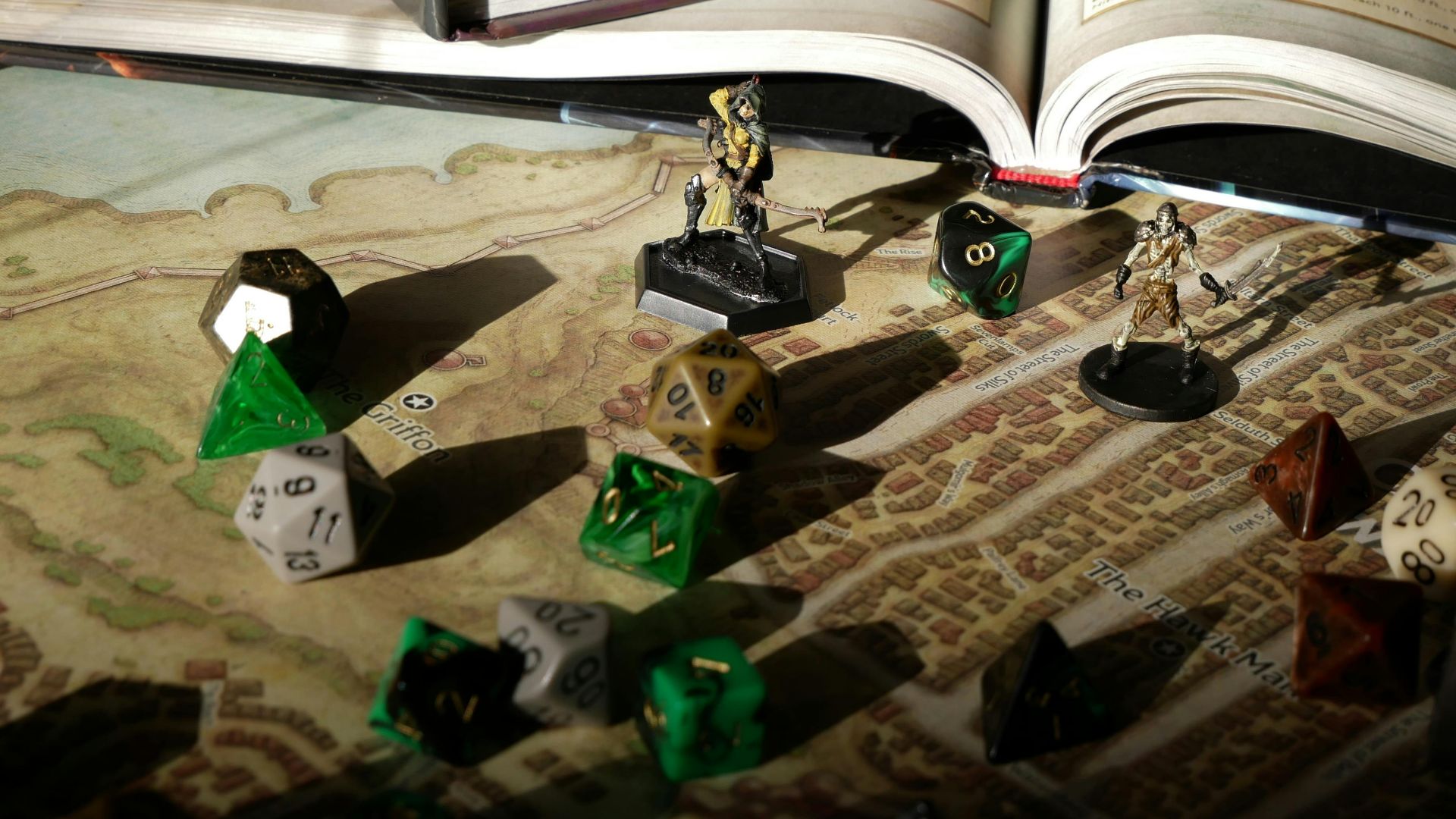Start Your Adventure Off Right
Gone are the days of Dungeons & Dragons being the hobby of basement-dwelling nerds. In fact, the tabletop game is more popular than ever! While the roleplay and math aspects can seen daunting to potential players, getting into DnD is actually far easier than it seems.
1. Start Small
We mean this both literally and figuratively. A 3 to 4 person party (minus the GM) will keep everybody engaged and prevent voices from getting lost in the chaos. Similarly, don't go overboard with your character's backstory right off the bat; let it develop alongside you abilities as a player.
2. Pick Your Party Wisely
Your party should be made up of people you trust. Not only will this take some of the pressure off the roleplay aspect, but it will make the chemistry come easier. If none of your IRL friends are interested in a game, look online or at your local game shop for open campaigns.
3. Choose A Melee Class
Spellcasters are cool, we know. However, druids and sorcerers can be daunting for first-time players trying to remember the mechanics. Fighters and barbarians are the easiest classes to play: your only goal is to knock 'em dead.
4. Communication Is Key
Both in-universe and in real life, communication will keep the your party's wheels turning. DnD is a collaborative effort and, while nobody likes the player trying to be the protagonist, a player who sits back and lets things happen can be equally frustrating. Similarly, if there's territory you're not comfortable getting into, make sure your DM knows in advance.
5. Don't Take Things Too Seriously
Roleplay is, at its heart, sort of silly—and there's nothing wrong with that! You're here to play pretend with your friends; the odd critical fail or bungled sidequest won't make or break your game. Even if your character is in mortal peril, you can always keep going.
6. Speak Up
Have an idea or suggestion? Share it with the table! Newness shouldn't keep you from speaking up, and new players often have interesting points of view. Your fresh eyes may pick up on things that veteran players miss.
7. Use The Sacred Text
If you have a question, the answer is probably in the Player Handbook, which info on every creature, class, and combat style. Having a physical or PDF copy on-hand can keep things running smoothly. The same goes for character sheets and additional backstory you develop.
 Photo By: Kaboompics.com on Pexels
Photo By: Kaboompics.com on Pexels
8. Give Your Character Flaws
Flawed characters are fun characters. Your character isn't going to max out every skill category, so accept your flaws and find ways to work them into gameplay. Just be sure not to go overboard lest you wander too far into edgelord territory.
9. Don't Metagame
Nothing ruins a game faster than metagaming. Metagaming blurs the line between player and character, giving your player access to information that they wouldn't normally have. This can apply to bringout outside knowledge to the table such as conspicuously bringing a mirror to defeat a basilisk, even if you haven't encountered one before.
10. Get Silly With It
Roleplay can be a daunting and emotionally vulnerable task to those who are unfamiliar with it. Most DnD scenarios are—at their heart—kind of silly; this silliness should be leaned into rather than ignored. If you want your character to have a fun voice, for example, go for it!
11. Be A Good Party Member
A party is a team, and team members support each other. This applies to both in-universe and out-of-universe interactions. Cheer on your fellow players when they roll at Nat 20, providing physical and conversational backup to them in scenarios.
12. Take Notes
DnD isn't like school; as part of a continuingly moving story, there will be more things than you will be able to remember. Depending on how long you go between sessions, you may forget details of your previous session. Also, jotting notes directly on your character sheet can help you remember quick facts about spells, weapons, and more.
13. Build Off Of Premade Characters
Next to roleplaying, coming up with a character can be one of the most intimidating aspects of the game. Premade characters exist to make the game easier for new players. There are tons of pre-made characters online; find one and build off of it.
14. Learn The Rules
Asking for clarification is good, but if you have to delay every turn to ask a question, you're going to seriously slow things down. You don't have to memorize the player's handbook before your first round, but you should have a good grasp of the core game mechanics before playing.
 Noémi Macavei-Katócz on Unsplash
Noémi Macavei-Katócz on Unsplash
15. Don't Try To Be The Main Character
All the members of your party should be treated as equal, even the DM. Don't try to moments of glory from someone else, don't drown out other voices, and never assume that this is the You And Everyone Else Show.
16. Be Gracious
You should be gracious to other players yes, but especially to the DM. They're putting a lot of time into creating and running a world for you. They may make mistakes and/or choices you don't agree with, give them time to develop.
17. Be Patient
DnD sort of operates on its own unique timeframe. A lot of things can happen in even the most uneventful session; everything happens and nothing happens. You're not going to get the mechanics perfect on your first try, nor will the story immediately unfold into an action-packed climax without payoff.
18. Break The Rules
Some rules are rules, and others are more like guidelines. Which ones are which will vary depending on your party, but among friends (and especially with new players) the DM may take a more flexible approach to the player's handbook.
19. Go One Roll At A Time
Stories start small. You don't need to know every minute detail of your character's tragic backstory in order to have a captivating character/ Similarly, while the DM should have a good idea of what you're going to encounter, their plans may be foiled by player actions. Allow everything to happen as it will.
20. Have Fun
As cheesy as it is, this is the most important rule of every game. You're not playing for trophies or glory (except perhaps in-game), you're playing to have fun with your friends. You also aren't getting graded, so don't be afraid to take big swings and get creative.


























